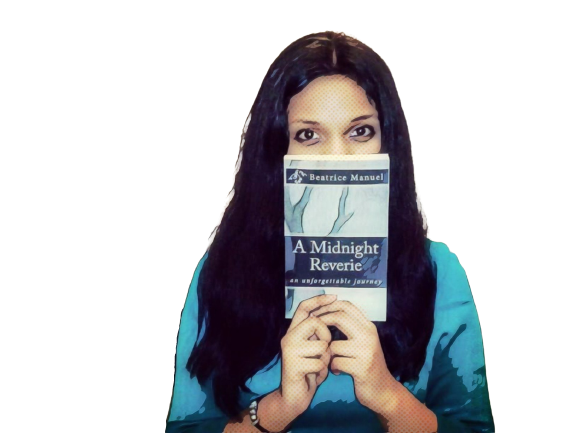
I’ve been scared to write sometimes. It’s not the first time I’ve felt this way, but it’s always difficult to shake off. Oftentimes, when people are scared of writing they plan everything out and have their entire story ready and waiting to be written but get “performance anxiety” when all that’s left to do is write it out.
This post tackles how you can finally put pen to paper by overcoming your fear or writing anxiety before hammering out that first draft.
What is writing anxiety?
Writing anxiety is a term used to describe the fear of writing.
People who suffer from this often plan out their entire story before even getting started but get scared or anxious about actually putting pen to paper and ending up with an empty page staring back at them instead of what they had planned for weeks, months, or even years on end.

Some people assume that writers are confident in themselves when writing which might be true most times because it’s our job (although I’m not sure if I’d consider it my “job” just yet), but we do experience moments where insecurity takes over us as well—especially during first drafts.
Strategies to eliminate your anxiety
Before writing down a single word of your first draft, here are some tips that can help you overcome performance anxiety.
Identify your triggers.
What makes you scared to write?

For some, it’s the pressure of perfection and trying to get everything right this time around. Others might be scared because they know if they’re not happy with their writing then readers won’t be either which is something that can lead them into a downward spiral of doubt and difficulty in continuing on at all.
Write down your fears or anxieties first so you can easily identify what triggers those feelings within you before putting pen to paper (or fingers to keyboard).
Then confront these issues head-on by identifying why it scares you and come up with strategies for overcoming each fear as well as possible solutions for improvement later on when editing instead.
Focus on the experience, not the fear
Writing can be a scary experience and it’s okay to acknowledge that, but when you’re overcome with anxiety before the first word hits the page, sometimes focusing on your fear is all you’ll end up doing.
Instead of asking yourself what if I fail or what if this writing isn’t good enough for me (or others), focus more on how amazing it will be once you finally make progress in overcoming your fears by taking action instead of analyzing everything down to its core which might cause even more distress.
When facing an empty page: plan ahead.
Pre-planning out parts of your story helps get rid of writer’s block because then you have a general idea about where things are going versus being stuck trying to figure out what comes next.

This is where people get scared again because they’re afraid of writing something down that’s “wrong” and then not knowing how to fix it later on, but just like with anything else you do in life: if you make a mistake, so what?
As long as you learn from your errors and mistakes without beating yourself up over them too much (or at all), then moving forward will be easier than ever before even if it means starting everything over or throwing away large chunks of the beginning altogether.
Writing first drafts should be freeing rather than torturous!
Commit to one idea/project at a time
This is especially important for writers who are multi-taskers because when you try to write while doing other things like a big work project or bingeing a show on Netflix (hey, Stranger Things marathons count!), your focus will be everywhere but where it should be which can make writing anything difficult in general.
If possible, dedicate a specific time slot (even if it’s only 15 minutes) every day to work on one project without distractions so that once you sit down with the intention of working then odds are good that nothing else will matter until you’re finished—at least for those short periods of time! Write something about everything and don’t worry about what comes next just yet.
Writing first drafts is all about getting words out there whether they come easy or not. Some writers even split up large projects into smaller chunks that are more manageable in terms of both getting started and continuing afterward without feeling overwhelmed or scared along the way because nobody wants performance anxiety!
Create an action plan with small goals
It’s important to start off with baby steps. Before even thinking about writing out the entire story or large parts of it, start with smaller bits until they lead into one another.
For example, write idea number one followed by two and three instead of aimlessly jumping from one thought to the next without any connection between them.
You’ll end up having an easier time making everything flow better together if each section is somewhat connected before moving on to the next part.
Write regularly
Maintaining a writing schedule is one of the best ways to overcome any fear that comes with it because when you’re forced into doing something every day, there’s no room for hesitation and/or putting things off until later.
For example: if you’re not hopeful about feeing consistent with your writing routine just yet, then perhaps try posting on social media or even blogging about what interests you at least three times per week so that maintaining consistency becomes easier than ever before!
Then, move that discipline over to writing and it won’t feel as challenging.
Get an accountability partner
An accountability partner is someone with who you can share your writing goals and they aim to help you stay on track with your project. Knowing someone else is counting on you to deliver can incentivize you to work harder to get that first draft going.

An accountability partner can be a friend or a family member. They can also be a fellow writer with their own project that you can help with in return.
It doesn’t matter who your accountability partner is—just that they’re there for support when writing anything seems too difficult to do alone and/or makes you scared or anxious. Use them as a sounding board whenever necessary so don’t be afraid to ask for their advice.
Motivate yourself through rewards
Rewards are especially helpful when working towards a larger goal such as finishing the first draft of an entire manuscript.
But rather than rewarding yourself after everything is complete (as tempting as it may be), give yourself little incentives along the way by doing something fun every time you meet another milestone.
This will make getting started feel less daunting over time since obstacles become easier to overcome!
Take breaks when needed
If it’s still not working out, take some time to reflect on what your next steps should be before doing anything else. Maybe talk to someone or maybe just chill for a bit until you feel better about the situation at hand.
There’s nothing wrong with taking an “incomplete” story idea to work on another day when writing anxiety is less of an issue.
Celebrate your successes
Last but not least, don’t forget to pat yourself on the back when things get done!
To borrow the word of Kool & the Gang, “Celebrate good times, come on!”

It’s important to celebrate your accomplishments no matter how small they may be because that way you’ll feel better about what you’ve already achieved and will become more motivated than ever before.
Write your anxiety away!
It takes a lot of practice for writing anxiety to go away but now that you’re aware of what helps, it’ll be easier than ever to take the first step and put pen to paper!
When it comes to writing, the fear of getting started is often worse than actually doing it. The best way to overcome this fear is by breaking up your project into smaller goals that are achievable rather than just jumping in head first.
You can also take a break if you need time or motivation and then come back when you’re feeling better about what needs to be done next.
Finally, don’t forget to reward yourself along the way so as not to become discouraged over time – after all, small steps lead to big achievements!
These tips should help you get past any anxiety before starting on anything new so give them a try today, and let me know which ones were your favorites!

I needed to thank you for this excellent read!! I definitely loved every little bit of it. Ive got you bookmarked to check out new things you postÖ